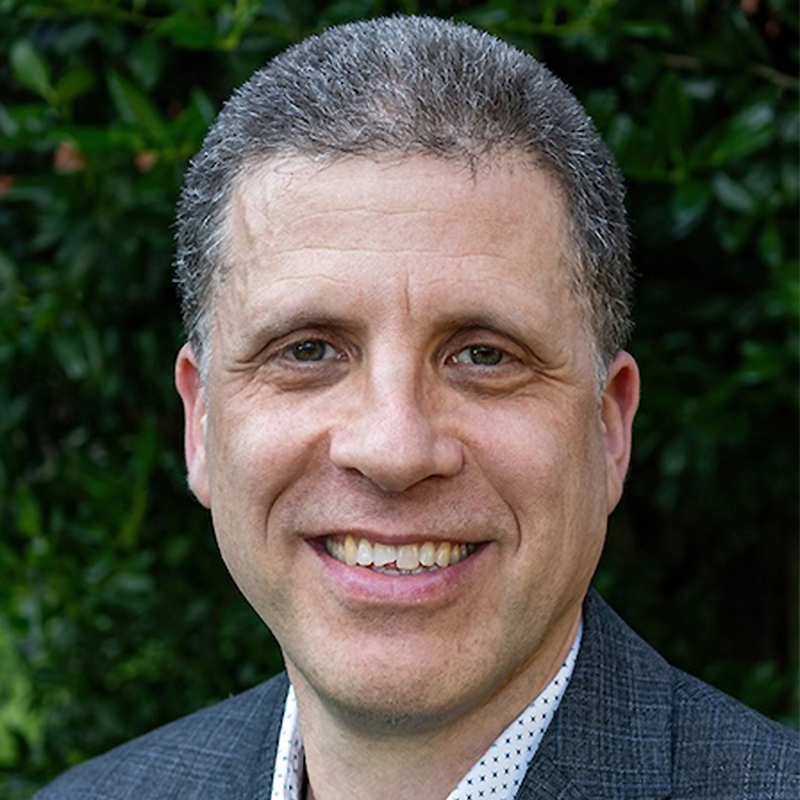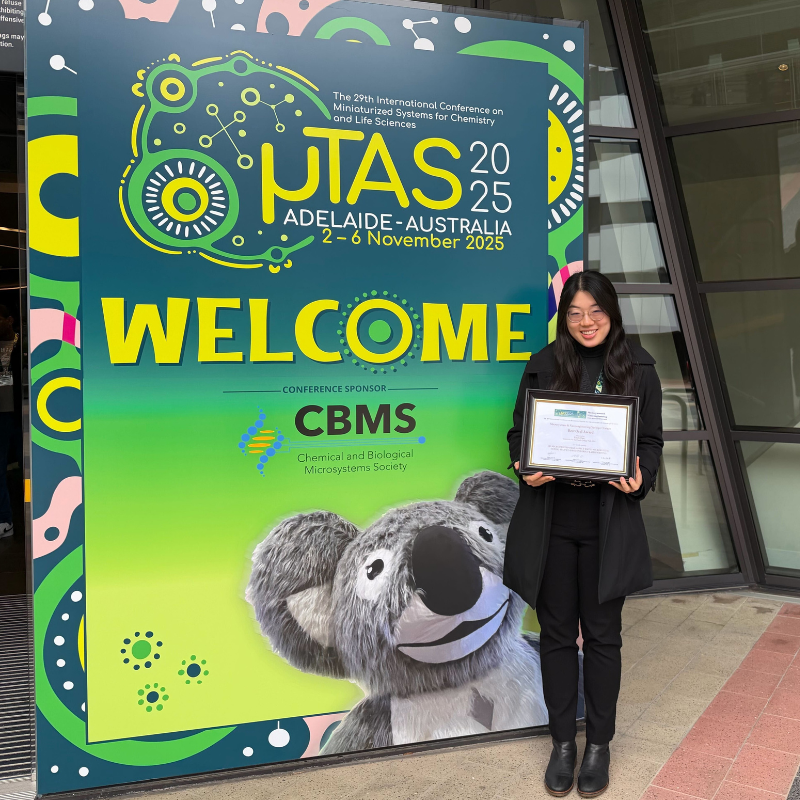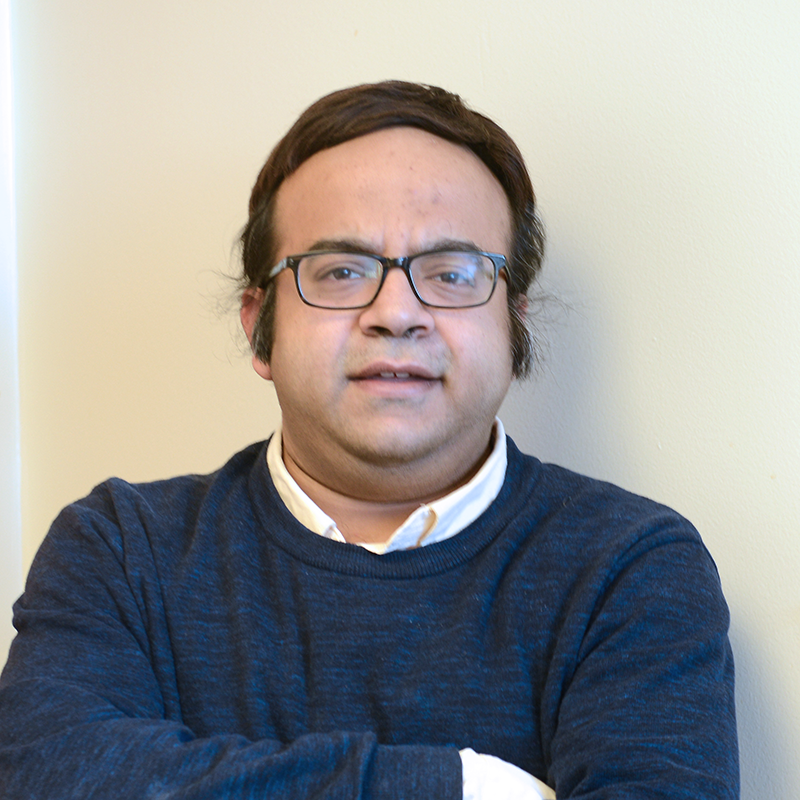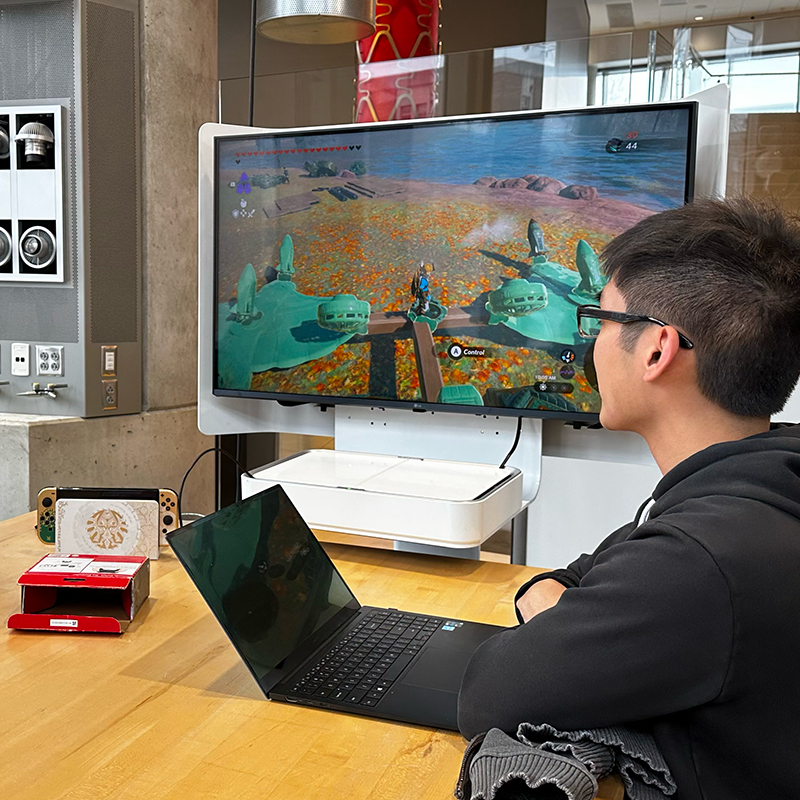News Story
Engineering for Social Change Class Awards $10,000 to Oyster Recovery Partnership
During a ceremony held December 8, 2017 at the University of Maryland (UMD), students in the Engineering for Social Change course awarded the Oyster Recovery Partnership $10,000 to support their goal to increase oyster population in the Chesapeake Bay. The grants for the class are funded through generous support from the Neilom Foundation. Now in its fourth iteration, the class has given more than $40,000 to local nonprofits.
Engineering for Social Change began in 2015 by the Center for Engineering Concepts Development (CECD) within the Department of Mechanical Engineering. It was established by Professor Emeritus Davinder K. Anand to encourage students to consider the social impact of engineering. A central theme of the course is unintended consequences, both positive and negative, and how engineers can consider them moving forward into their careers. This year, the problem area addressed by the class was waste, and the nonprofit organizations selected were targeted for their activities in mitigating waste in the State of Maryland.
The Oyster Recovery Partnership (ORP), based out of Annapolis, works within the Chesapeake Bay to increase overall oyster population. To combat the impact of urbanization and agricultural waste pollution on the oyster population, ORP deploys spat on shell in the bay. In 2016, they deployed over 835 million spat on shell and worked with commercial watermen to place 270,000 bushels of shell on public oyster reefs.
With the Engineering for Social Change grant, ORP plans to implement a large hopper and conveyer belt to alleviate shell breakage in the cleaning stage of their process. The group estimates that 15% of their shells become broken and unusable in the cleaning process. To decrease shell loss, the new hopper will increase the quantity of shells that could be fed into the cleaning system and limit excessive handling of shells.
“We are honored to be the fourth recipient of the Engineering for Social Change grant award, and eager to put this funding to good use,” ORP’s Director of Program Operations Ward Slacum. “This grant will allow us to improve our oyster shell handling process to conserve more shell and, therefore, improve more oyster habitat annually. We offer a huge thank you to the students for recognizing the ecological value of shell recycling and the Neilom Foundation for supporting projects such as this.”
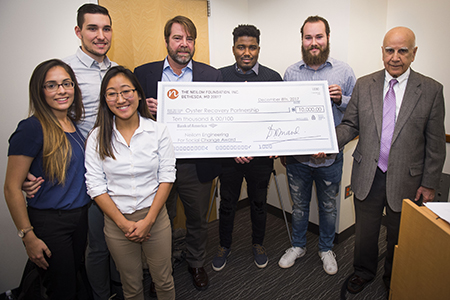
Students in the Engineering for Social Change Class with ORP Director of Operations Ward Slacum and CECD Director and Emeritus Professor Dr. Davinder Anand. Photo Credit: Lisa Helfert
This year, student groups worked with nonprofits to create the proposal to present to the class. These nonprofits included the Waterfront Partnership of Baltimore, Community Food Rescue and the Food Recovery Network, among others. In previous iterations of the class, interested groups contacted the class to submit proposals for the award.
Throughout the semester, students in the Engineering for Social Change course heard from guest speakers at the intersection of engineering, philanthropy and social justice. Topics discussed in these lectures include social media, the social impact of 3D printing and waste to energy, to name a few.
Since its inception, more than 160 students have participated in the Engineering for Social Change course. The course began in Mechanical Engineering and has since expanded to include students from all the departments of the Clark Engineering School.
Past recipients of the Engineering for Social Change grant include FRESHFARM Markets for their FoodPrints Program, Bread and Water for Africa® to build a community well in Sierra Leone, and most recently, V-LINC was awarded the grant to support their Custom Assistive Technology program. Through this program, V-LINC engineers custom solutions for people with disabilities throughout Maryland.
CECD, established in 1998, is a platform for experimenting with new ideas in engineering education, future technologies, research and the impact of engineering on society. CECD's mission is to undertake activities to benefit the economic welfare of the state of Maryland and the Nation by supporting symposia, special groups, courses and innovative activities of contemporary interest.
The Neilom Foundation is a 501(c)(3) non-profit in the Washington D.C. metro area, established in 2013 in memory of Dilip Anil ‘Neil’ Anand, with the singular mission of improving the lives of young people through the intersection of education and technology.
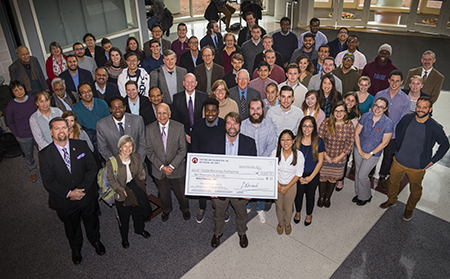
Group of faculty, students and staff at the Engineering for Social Change Grant Presentation Ceremony and Celebration. Photo Credit: Lisa Helfert
Published December 19, 2017






